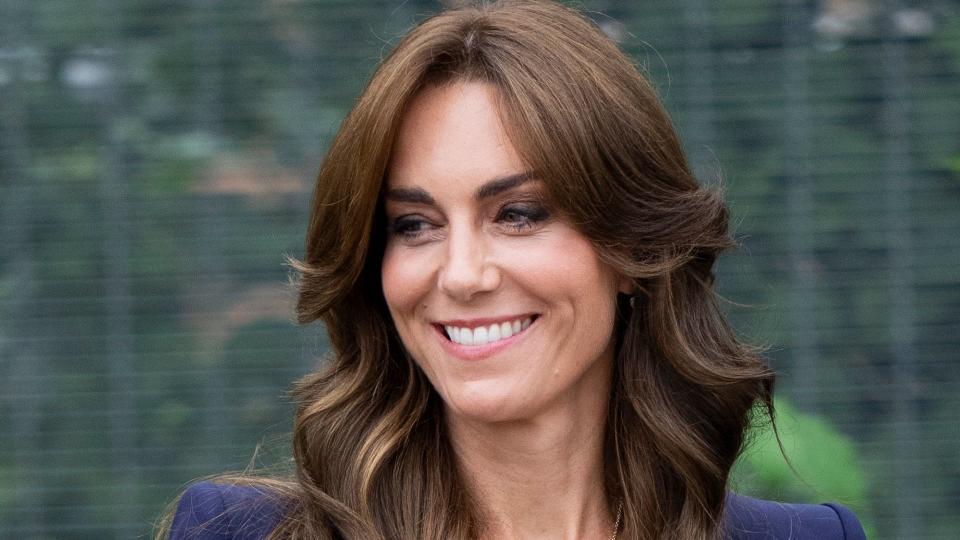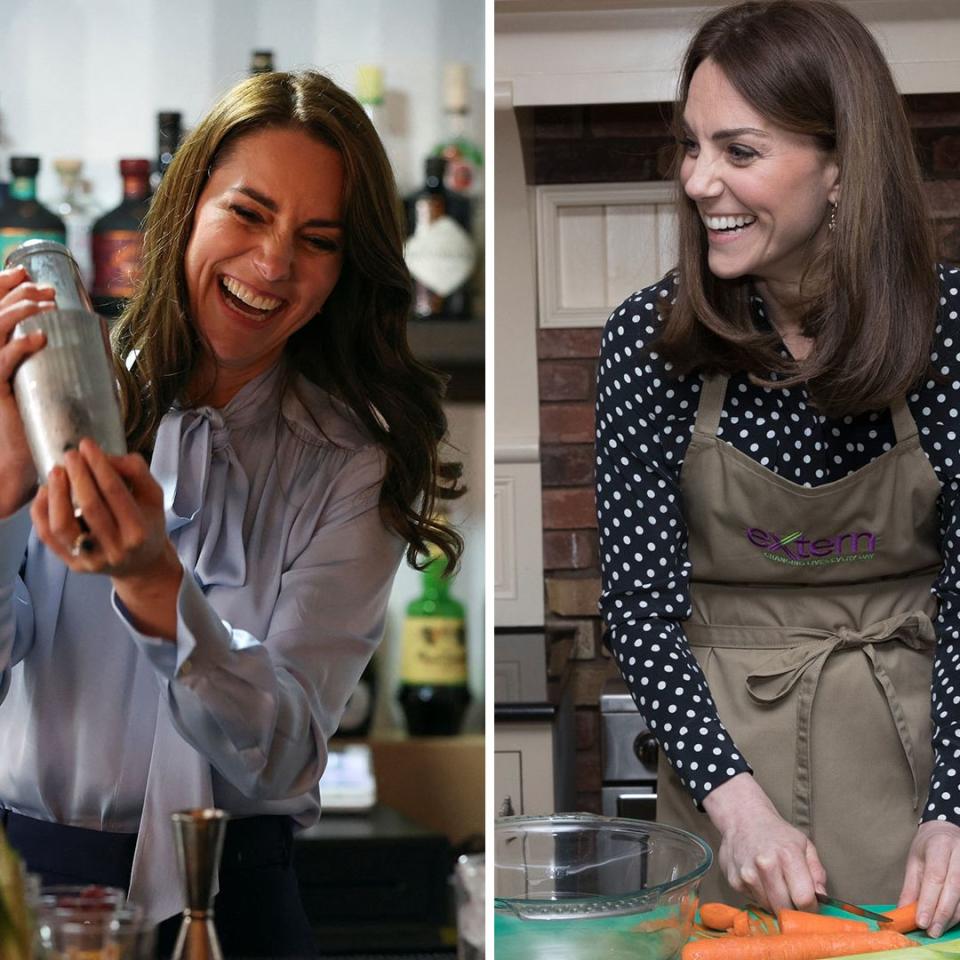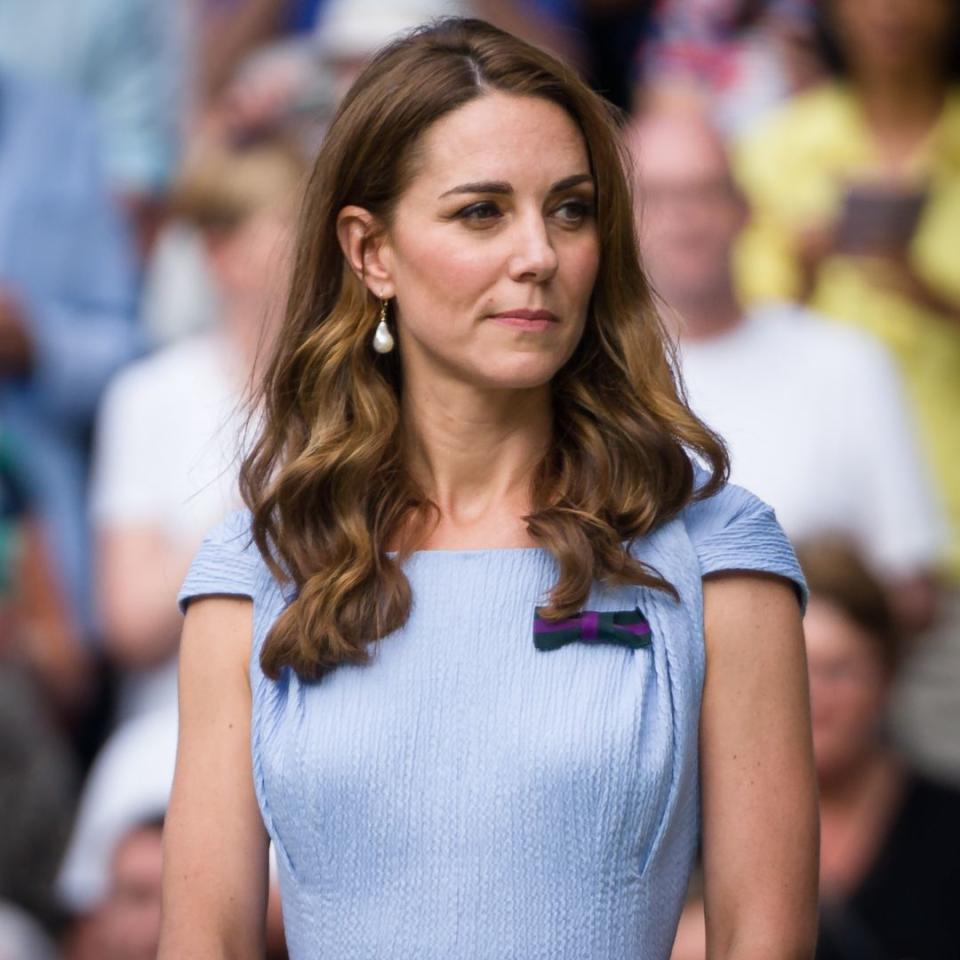Princess Kate's kind gesture to young cancer patients you may not know about

Nearly 100 million people have watched the Princess of Wales' moving video revealing her shock cancer diagnosis, which was shared to the royal's official Instagram account last Friday.
Princess Kate, 42, thanked the public for "all the wonderful messages of support" before asking for privacy for herself and her family, including Prince George, Princess Charlotte and Prince Louis, whilst she focuses on getting well.
As the world remains hopeful for the Princess' full recovery, it is touching to remember Kate's own support for cancer patients over the years.
In 2018, it was reported that the wife of Prince William donated several inches of her hair to Little Princess Trust; a charity that provides real hair wigs, free of charge, to children and young people who have lost their own hair through cancer.
At the time, it was reported by the Sunday Express that Kate had imagined the idea while her hairdresser, Joey Wheeler, was cutting her hair at Kensington Palace.
You may also like
Princess Kate's royal diet in detail: Breakfast, lunch, dinner and snacks Princess Kate's royal diet in detail: Breakfast, lunch, dinner and snacks
What is preventative chemotherapy? Princess Kate's treatment to 'eradicate' cancer explained What is preventative chemotherapy? Princess Kate's treatment to 'eradicate' cancer explained
Inside Prince William & Kate's idyllic life in candy pink Adelaide Cottage with George, Charlotte and Louis Inside Prince William & Kate's idyllic life in candy pink Adelaide Cottage with George, Charlotte and Louis
Princess Kate's hair was then donated under someone else's name, with a source for the Sunday Express saying: "It was sent using someone else's name, so that the trust didn’t know it was from a royal source – they just thought it was from a female donor in the Kensington area."

Upon hearing the news, the Little Princess Trust said it was a "great surprise" to have received a donation from the royal.
Helen Creese, a spokeswoman for the charity, said: "It's a complete surprise. Obviously we're all absolutely delighted that she donated her hair, and we're very grateful as well, just as we're grateful to everyone who chooses to support the charity in this way, and so many people do. We're assuming that she might have sent the donation anonymously."

She said the charity receives anonymous donations from time to time, adding: "It's such a selfless act anyway to donate your hair to help a sick child or young adult."
Why do cancer patients lose their hair?
Not all cancer patients lose their hair, though many patients who go through chemotherapy or radiotherapy may suffer from hair thinning or hair loss from as early as two to four weeks after their first treatment.
Chemotherapy uses powerful medicines that attack fast-growing cancer cells. At the same time, these medicines can also damage other fast-growing cells in your body, such as the cells in your hair roots.

Chemotherapy may cause hair loss all over your body, not just on your scalp. Sometimes your eyelash, eyebrow, armpit, pubic and other body hair also falls out.
In radiotherapy treatment, hair loss only occurs in the area where a cancer patient is having treatment. According to the NHS, in most cases, hair cells start to grow back as soon as chemotherapy or radiotherapy ends.
Wearing head scarves, hats, or wigs, can help cancer patients to feel more confident amid the many challenges cancer poses, which is why charities like Little Princess Trust, exist.
Jo Frost's advice for telling a child someone they love has cancer
Be honest and open and in a place that is more comfortable for them if possible.
Use words they will understand, this depends on their age and their understanding of the disease.
Find the balance between too much information and too little, opening up the opportunity to ask questions and curiosity.
Explain the physical changes they might see, this helps them to expect when changes occur.
Explain cancer is a serious illness and that there are different treatments and remain optimistic because this is still keeping the conversation real whilst living very hopeful.
Let them have open opportunities to ask questions and express their feelings at different times beyond the time you sit down together.
Children might blame themselves and ask if it was them who caused it and so it is very important to state that people of all walks of life experience such diagnosis of cancer.
There is no written script, no 'right way' you know your child best, so how you handle this sensitive conversation I believe is in your trusted loving hands.





